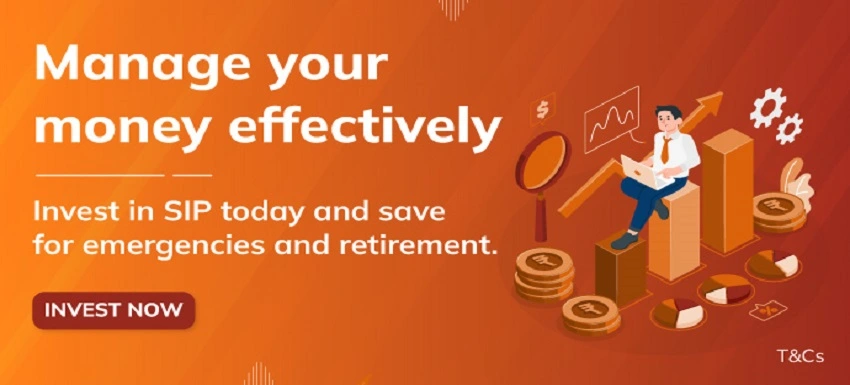THE
ORANGE
HUB
ETF Vs Mutual Fund: What's the Difference?

In the routine of work, earnings, spending and repetition, the crucial ingredient often missing from the narrative is investing. As individuals strive to achieve various life goals, the avenue of investment becomes important. Two widely discussed investment options in the financial landscape are Mutual Funds (MFs) and Exchange-Traded Funds (ETFs).
People approach investment, with diverse objectives like wealth creation, effective money management or building a robust retirement corpus. In this context, Mutual Funds and Exchange-Traded Funds have gained prominence as investment packages catering to different needs and preferences. In this blog, we will learn about ETFs and Mutual Funds and the best fit to make smart financial decisions.
Understanding Mutual Funds
MFs involve a collective pool of money from investors with similar objectives and risk appetites. A Fund Manager manages the pooled funds strategically invested across various securities and assets. The Fund Manager's expertise and market knowledge guide the allocation of funds to generate optimal returns for investors.
Equity Funds
Equity funds work like a basket that holds small pieces of ownership in many different companies. When you invest in Equity Funds, your money is used to buy shares or stocks of various companies. These companies could be big or small and as they grow and do well, your investment's value tends to increase.
Debt Funds
Unlike Equity Funds, Debt Funds involve lending money rather than owning a part of companies. When you invest in Debt Funds, your money is used to provide Loans to the government or companies. In return, you receive regular interest payments, like earning interest on a bank deposit. Debt Funds are generally considered less risky than Equity Funds, because the focus is on generating steady income through interest payments rather than relying on the fluctuations in the stock market.
Hybrid Funds
Hybrid Funds aim to strike a balance by combining the features of both Equity and Debt Funds. These Funds invest your money in a mix of Stocks (Equity), Bonds or other Debt Instruments. The idea is to provide the potential for growth through equity investments, while offering some stability through debt investments. Hybrid Funds cater to investors who want a diversified portfolio, benefitting from the potential returns of stocks, while having a safety net through fixed-income securities
Understanding Exchange-Traded Funds
ETFs and MFs involve collecting money from investors and investing it in various securities. The key difference lies in how they operate.
ETFs track an index, essentially a list of stocks from different companies based on that index. In contrast, MFs are managed by professionals who decide which securities to buy or sell. ETFs can be actively traded on stock exchanges, akin to individual stocks, providing real-time buying and selling flexibility.
This feature contrasts with Mutual Funds, where transactions occur at the end of the trading day at the Net Asset Value (NAV) price. Understanding these distinctions empowers investors to choose the investment vehicle that best aligns with their preferences and financial objectives.
Key Differences between ETFs and Mutual Funds
ETFs and MFs involve collecting money from investors and investing it in various securities. The key difference lies in how they operate.
Trading Mechanism
ETFs: Actively bought and sold on stock exchanges, offering flexibility similar to individual shares.
MFs: Purchased from a fund house, while some MFs are listed on exchanges, the buying and selling process differs.
Lock-in Period
ETFs: Typically do not have a minimum lock-in period, providing investors the freedom to buy or sell at their convenience.
MFs: Often involve a minimum lock-in period and selling before this period may incur penalties.
Management Style
ETFs: Passively managed, tracking the performance of a specific index.
MFs: Actively managed by Fund Managers or professionals who strategically allocate funds.
Benefits of ETFs
ETFs offer unique advantages that appeal to certain investors:
Real-time Trading: ETFs can be traded throughout market hours, allowing investors to react to real-time market changes
Lower Expenses: Generally have lower expense ratios than actively managed MFs due to passive management.
Benefits of Mutual Funds
Mutual Funds on the other hand, present a set of advantages that cater to different investor preferences:
Active Management: Fund Managers actively make investment decisions, aiming for optimal returns.
Diversification: Offers diversification across various securities to mitigate risks.
Considerations for Investors
When deciding between ETF and Mutual Funds, it is crucial to align choices with individual financial goals, risk tolerance and preferences for active or passive management. ETFs bring flexibility and real-time trading advantages, allowing investors to buy and sell throughout the trading day.
On the other hand, MFs provide the expertise of professional Fund Managers who actively manage portfolios, making strategic decisions to navigate market fluctuations. Understanding these distinctions empowers investors to make informed choices based on their unique financial objectives and preferences.
Conclusion
In the dynamic investment domain, Mutual and Exchange-Traded Funds play distinct roles. Investors must comprehend the nuances of each option to make informed decisions, aligned with their financial objectives. Choice between ETFs Mutual Funds depends on various factors and understanding these differences empowers individuals to make effective decisions.
Scroll to top











